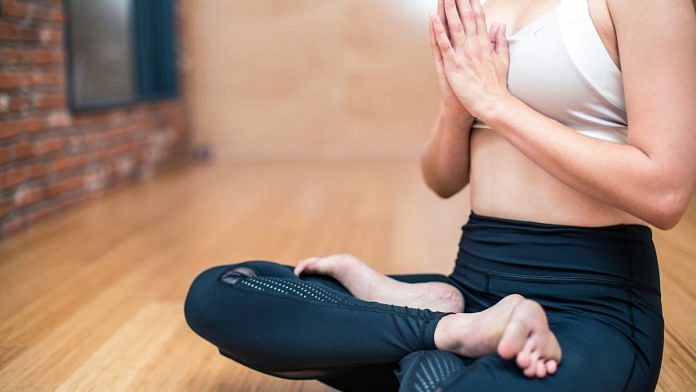Do you feel itchy, irritated, and downright gross when you wear your favourite gym pants and fancy underwear? That sneaky, unwelcome guest is known as ‘jock itch’—an annoying fungal infection that brings forth a crimson rash with small, raised bumps. Caused by mould-like fungi called dermatophytes, this pesky troublemaker tends to appear in the groin, buttock and thigh regions – particularly men’s – where warm, moist skin folds provide an easy gateway for its unpleasant arrival.
This problem is particularly prevalent among fitness freaks who love the sleek, trendy appeal of spandex, nylon, and other synthetic apparel. Unfortunately, these fashionable training clothes do not always prioritise ventilation and moisture management, creating an ideal environment for fungal infections to thrive.
Preventing and treating jock itch
As a dermatologist, it isn’t uncommon for me to come across cases of jock itch. Also known as ringworm of the groin or tinea cruris, the only way to combat this itchy menace is a simple but oft-neglected advice —take a shower and maintain basic hygiene. Incorporating a morning and evening bathing ritual into your gymming routine can work wonders as it will cleanse accumulated sweat and mitigate the risk of infection.
Next, shaving or trimming your private areas can help prevent jock itch. As ‘masculine’ as those thick hair tufts are, they also provide a comfortable home to dermatophytes. You can minimise the fungi-friendly conditions and lower your risk of developing jock itch by maintaining well-groomed nether regions.
If you’ve already caught jock itch, using an anti-fungal ointment may help. These creams can be obtained without a prescription at most drugstores. In certain instances, both oral anti-fungal medication and topical anti-fungal creams may be required for treatment. This combination approach helps eradicate the infection completely. The duration of anti-fungal treatment typically ranges from two to four weeks but can last longer for people suffering from diabetes and obesity. These drugs fight bravely against fungal invaders thanks to potent active ingredients such as clotrimazole, miconazole, and terbinafine, giving you much-needed relief from itchiness, irritation, and pain.
Treating additional fungal infections such as athlete’s foot (which occurs on the skin between your toes) simultaneously is crucial to preventing spread and promoting faster healing.
Keeping the affected area clean and dry is essential for managing jock itch. So, it is imperative to regularly wash the area with mild soap and water and dry it with a clean towel to prevent moisture buildup. Sprinkling anti-fungal powder is also great, especially as a palliative step for diabetics or people prone to repetitive fungal infections.
Changing your clothing daily, especially undergarments and socks, is vital. You shouldn’t be wearing unwashed undergarments. Changing them more than once daily is advisable if they become wet or damp from sweating. Opt for breathable fabrics like cotton for better air circulation and moisture absorption.
Also read:
Jock itch can be contagious
The nature of this infection is quite annoying, as once it takes hold and starts living on your skin, it doesn’t confine itself to one area. It can leave a trail of red circular lesions or lines on your body after aggressively claiming your intimate areas as its domain, causing itchiness, lumps or pimples, eventually develop into inflamed, red lesions.
Jock itch and dandruff have something in common – fungi. While dandruff belongs to the yeast family and settles on your scalp, jock itch invades your body’s warm, wet areas. Therefore, people struggling with jock itch could also have bothersome dandruff flakes.
To guarantee the full eradication of fungal infections such as jock itch, it’s crucial to adhere strictly to the recommended treatment plan, and to not overlook the importance of good hygiene.
Most importantly, choose fitness gear judiciously. Look for workout clothing with moisture-wicking features that draw perspiration away from your body and encourage evaporation. Nowadays, a variety of sportswear manufacturers provide fashionable and useful apparel manufactured from breathable cotton blends or bamboo fibres. These materials can keep you dry, cool, and less prone to the growth of fungi.
Additionally, pay attention to how clean your gym clothes and surroundings are. Do remember the fact that it can be contagious. Don’t share towels with the unknown. Exercise facilities can also be home to various bacteria and fungi, which is why it is advisable to take safety measures while using them. Use disinfectant wipes to clean your equipment before putting it to use. Also, refrain from walking barefoot in shared spaces like showers and locker rooms. You can purchase a reliable pair of flip-flops or waterproof sandals to protect your feet from potentially hazardous surfaces.
Keeping a healthy lifestyle is essential to boosting your body’s defence systems, so ensure your food is balanced and full of nutrients. Exercising regularly, getting enough sleep, avoiding smoking and practising efficient stress management would help improve your immunity and make you less susceptible to diseases and fungal infections.
Lastly, although curing a jock itch is not an insurmountable challenge, seeking the advice of a dermatologist for an appropriate diagnosis and treatment is strongly recommended if the infection persists or worsens. Remember that you can successfully defend yourself against this unwanted guest with good cleanliness habits, selecting breathable training clothes, and taking measures to minimise fungal contact.
Dr Deepali Bhardwaj is a dermatologist, anti-allergy specialist, laser surgeon and internationally trained aesthetician. She tweets @dermatdoc. Views are personal.
(Edited by Zoya Bhatti)



